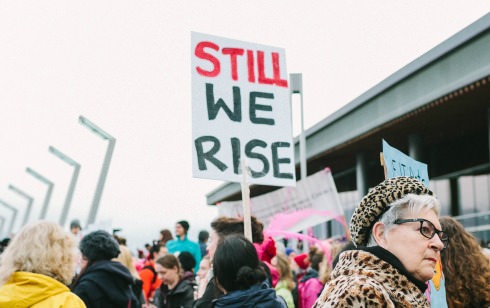 If you want to stay happy and healthy you need to draw on the skills of cooks and dieticians. You also need them to stick to their own skills. Ask a dietician for a happy recipe and you may eat miserably. Ask a pastry cook to care for your diet and you may become a cardiac disaster.
If you want to stay happy and healthy you need to draw on the skills of cooks and dieticians. You also need them to stick to their own skills. Ask a dietician for a happy recipe and you may eat miserably. Ask a pastry cook to care for your diet and you may become a cardiac disaster.
The 2017 Catholic Social Justice Statement, Everyone’s Business: Developing an inclusive and sustainable economy, is not a recipe. Its purpose is broader: to invite people to reflect on the current state of Australian society and its defects, before suggesting ways in which those defects can be addressed and the nation made more sustainable. It is concerned with facts, principles, and encouragement to find a better way.
The statement is timely. After many years in which big corporations and economists spruiked, and governments accepted, the belief that national prosperity depended on individuals competing without restraint for economic gain, the game is up.
The natural results of unrestricted competition and the exaltation of individual wealth include gross inequality, the running down of public services, the totally inadequate payments and punitive treatment of the unemployed, the growth of homelessness and the appalling conditions of Indigenous Australians, the expansion of part time work and the removal of penalty rates and the trashing of the environment. Liberal economics is rightly on the nose. Inclusiveness and sustainability are attractive ideas.
The Catholic view of the economy, so strongly commended by Pope Francis, is that its purpose is to serve the prosperity and welfare of all human beings, including our children and descendants, and so must be guided to that goal. By themselves, economic growth and the increase of national wealth are not a sign of a good society. Nor should people be treated as tools for producing goods and wealth. They are partners in society and should be partners in business. The test is whether that wealth allows all people in society a place at the table, particularly the most vulnerable. They should also have a say in the decisions that affect their lives.
In a conspicuously wealthy society homelessness, the vilification and punishment of immigrants and the unemployed, holding benefits at a level at which people cannot live decently, and limiting access to education, work, and medical care are all signs of an economy that is not inclusive. We at Jesuit Social Services are particularly concerned that many of the people with whom we work are unable to live decently on the benefits they receive.
In a just society, the economy will be ordered to the good of the whole society, providing the infrastructure that ensures the development of people through education and work, caring for the most vulnerable and ensuring that we pass on to our grandchildren a world that is unspoiled.
These are the demands of a healthy economy. We need to use our creativity to find appropriate recipes. The Social Justice Statement is a good stimulus.